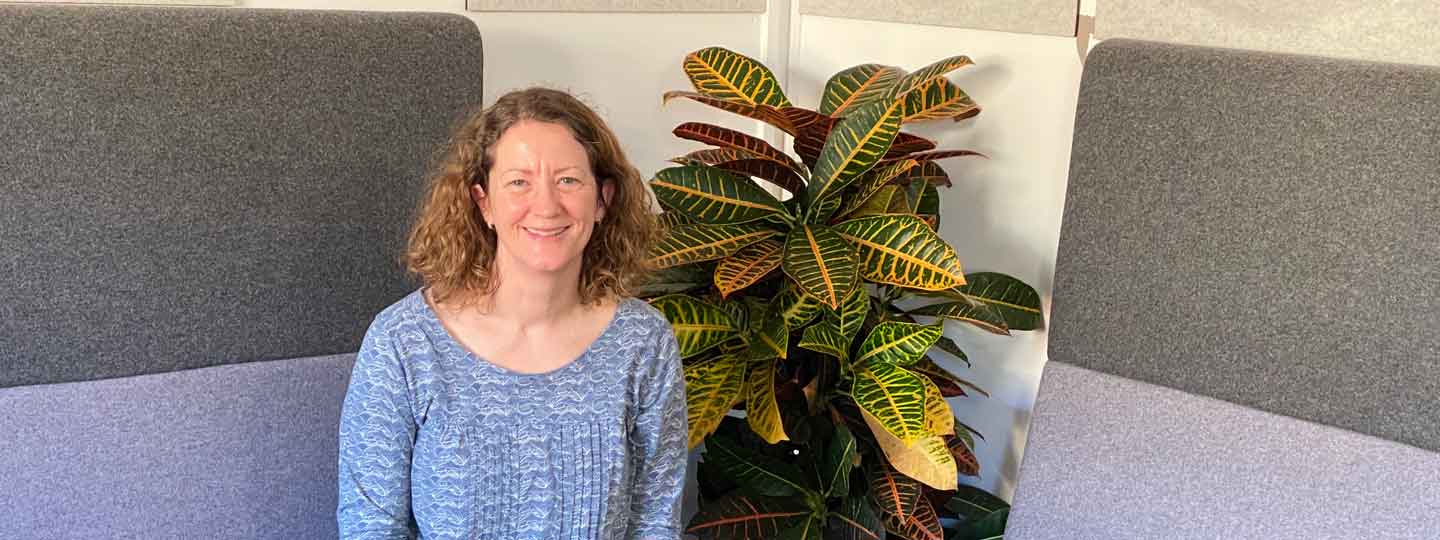“We try to provide callers with whatever support they most need at the time”
13 February 2020
Mags is one of our helpline advisors for our helpline and she has a background in education and helping others.
Here she shares why she’s passionate about supporting and empowering people to achieve change so they can improve their own quality of life.
“I know from personal experience the difference a helpline can make to someone with a health condition.”
Everyday our priority is to take calls to our helpline and in-between calls we reply to other enquiries on social media, email and on our online community.
What surprised me at first was the volume of email, social media and online community enquiries sent outside helpline office hours. We have out-of-hours peaks in the early hours when most people are sleeping. This clearly demonstrates the impact pain is having on people’s sleep and quality of life.
“We try to provide callers with whatever support they most need at the time.”
Sometimes that means encouraging someone who doesn’t want to bother their GP to speak to them about their symptoms.
Other times it involves talking through the risks and benefits of a treatment option, so they can have a more informed discussion with their GP, rheumatology team or orthopaedic surgeon.
On one call we could be exploring self-management tips, like exercises or diet. On the next, someone might be telling me about the impact their pain and fatigue is having on their work, their emotional wellbeing, or on their family or social life.
“Many of our callers talk about the challenges of living with a fluctuating condition.”
“They can’t see my pain”, “people imply I’m making it up because I can be managing one day and in pain or exhausted the next” and “I pretend I’m ok when I’m not” are regular comments on the lines.
It’s clear from our calls that there’s a lot of misunderstanding around the different types of arthritis and associated conditions. People often tell us their symptoms are dismissed as “a touch of arthritis”.
Many people still believe arthritis is an inevitable part of ageing or that someone is “too young” to have arthritis. This can result in delays in seeking a diagnosis or in accessing treatments to help manage symptoms.
It can also mean that people are missing out on vital support from family, friends and employers.
“I’m learning from callers who share their experiences of the daily reality of living with arthritis.”
It’s very satisfying when someone who was feeling stuck at the start of a call ends with an action plan of things to try that they had not previously considered.
Sometimes though, a listening ear and empathy is all we can offer and I know how valuable that can be.
That’s what keeps me going, the feeling that we’re making a difference and knowing how much still needs to be done.
It isn’t acceptable that arthritis is passively accepted by society. That’s why I’m proud to work for a charity that’s investing in research into break-through treatments and pushing for the change we want to see.
The conversations I have with our callers inspire me every day. That’s what makes the job worthwhile.
We’re here whenever you need us.
If you want help, support or information, get in touch.
- Call our Helpline on 0800 5200 520
- Talk to our arthritis virtual assistant, 24/7
- Join our online community
- Follow us on Twitter, Facebook and Instagram.
You might also be interested in...
-
How can our Arthritis Tracker help you manage your arthritis?
Learn more about our arthritis tracker and how with your help we’ve made exciting some improvements to the app.
-
New stretching videos to help keep moving and manage your arthritis
Try our simple stretching videos to help ease pain, improve flexibility and make movement part of your daily routine.